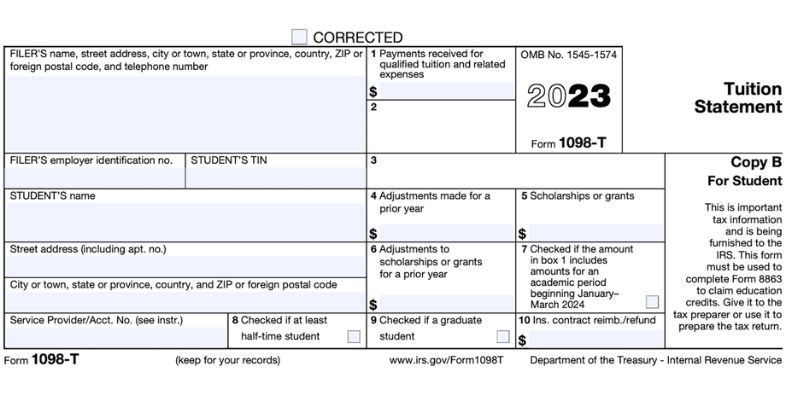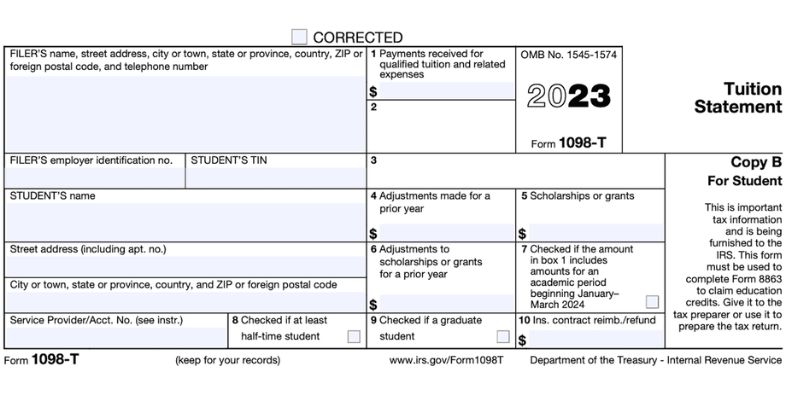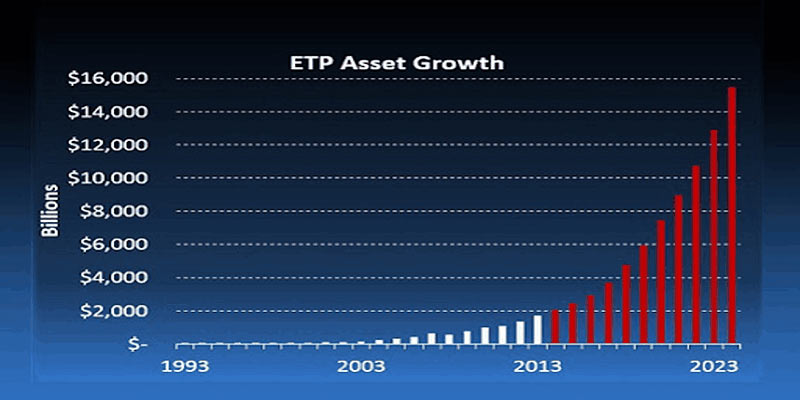Did you know that tax credits could lead to a refund? It's true! Tax credits are government incentives designed to help individuals and families with taxes, allowing them to keep more of their hard-earned money while supporting the common good.
This blog post will discuss using tax credits to get a partial or full refund. We'll explore which types of taxpayers may be eligible for special tax breaks, including those who have children or are self-employed, plus explain common means such as the earned income credit that all filers need to understand before filing.
With our guidance, your next filing season can be stress-free and full of rewarding financial surprises!
Refund Due: You Had Tax Withheld

Tax credits can be a great way to get a refund when you've had taxes withheld from your paycheck. The government offers several tax credits to help individuals and families keep more of their hard-earned money while supporting the common good. Sometimes, these tax credits can lead to a full or partial refund!
For example, those with children may qualify for the Child Tax Credit, which can reduce your total amount due at filing time. Self-employed individuals may also be eligible for special tax breaks that could result in a bigger refund check.
Additionally, filers should understand the Earned Income Credit (EIC), available for taxpayers who earned less than certain income thresholds during the year.
If you've had taxes withheld from your paycheck and want to ensure you get a refund, it is important to understand the various tax credits available.
Tax Credits That Can Get You a Refund

Earned Income Tax Credit (EITC)
The Earned Income Tax Credit (EITC) is a valuable tax benefit that can provide partial or full refunds for eligible taxpayers. It's an important part of the US tax code that all filers should understand.
The EITC was created to help reduce poverty by providing financial assistance to working families. It can be claimed by individuals who meet certain criteria, such as having earned income, filing a valid tax return, and meeting specific requirements regarding their filing status, age, and number of qualifying children they may have.
To be eligible for the EITC, taxpayers must also meet certain income limits based on filing status and number of children claimed on their taxes. Generally speaking, those making up to $39,296 (or $45,007 for those filing jointly and claiming more than one qualifying child) can qualify for the credit.
Eligible taxpayers may receive up to $6,660 in EITC funds depending on their income and number of children. The funds can be used for everyday expenses such as food, housing, medical bills, or other basic needs.
It's important to note that the amount of the credit is based on tax filing status and income level – so it's best to speak with a licensed tax professional before preparing your taxes.
The EITC is a great way for taxpayers to get money back from Uncle Sam and use it to help support their families. Although eligibility requirements are specific, many taxpayers can take advantage of this credit and benefit greatly from the additional funds. Anyone interested in learning more about the Earned Income Tax Credit should speak with a tax professional or search for resources online.
Child Tax Credit
Child tax credits can be an effective way for taxpayers to get a tax refund. Child tax credits are available to qualifying individuals with children under 17 living in their homes.
The government offers these credits to help offset the costs of raising children and ensure families with fewer resources can support their kids without added financial strain.
To qualify for the child tax credit, you must meet certain requirements, such as having a filing status other than married, filing separately, having a valid Social Security number (or ITIN) for each qualifying child, and meeting specific income limits.
The amount of credit available is based on your annual income level; the more you earn, the less credit you can receive. Also, remember that the credit is nonrefundable, meaning you can only receive a refund if it exceeds the taxes you owe.
Finally, be aware that any payments received through child tax credits are subject to income taxes. If you're claiming the credit but have yet to expect to owe taxes, set aside enough funds to cover any potential liability when filing your return.
American Opportunity and Tax Credit
The American Opportunity and Tax Credit (AOTC) is a tax benefit designed to help American taxpayers offset the costs of higher education. The credit allows eligible taxpayers to claim up to $2,500 per student for tuition, fees, books, and other related expenses.
To be eligible for this credit, students must be enrolled at least half-time in an accredited college or university and have yet to earn their degree. Additionally, income limits apply based on filing status and number of dependents claimed. Those with adjusted gross income above certain thresholds may still qualify for a reduced credit amount.
When claiming the AOTC, it's important to note that a portion of the credit is refundable – taxpayers can receive a refund even if their tax liability is zero. This can benefit lower-income people who expect to owe little or no taxes.
Furthermore, the credit may also be used to pay for student loan interest and certain qualified education expenses in addition to tuition and fees.
Health Insurance Marketplace Premiuma and Tax Credit
A federal income tax credit known as the Health Insurance Marketplace Premium and Tax Credit aids in the affordability of health insurance for qualifying individuals and families that buy coverage through the Health Insurance Marketplace.
The credits are based on household income and the cost of plans in your area so the amount may vary from person to person. Those who qualify can use the credit in advance to lower monthly premiums or receive it as part of their refund after filing taxes.
You must fill out an application with the Health Insurance Marketplace to determine eligibility for this tax break. Additionally, if any changes occur during the year, you must notify them to stay up-to-date with your eligibility status. Taking advantage of this credit could mean more money back at tax time!
Saver's Credit
The Saver's Credit is a valuable tax credit available to those saving for retirement. This credit offers a maximum of 50%, 20%, or 10% of the first $2,000 contributed into an eligible retirement account, such as an IRA or 401(k), depending on your filing status and adjusted gross income. You must be 18 years old and not a full-time student to be eligible.
Additionally, married couples filing jointly can earn up to $65,000 to qualify for the full credit. The Saver's Credit is an excellent way to get money back on your taxes while putting away money for the future!
FAQs
How do I get my tax refund if I have no income?
You would not receive a refund if you had no taxable income during the tax year. However, if you qualify for certain credits, such as the Earned Income Tax Credit or Child Tax Credit, you may still be eligible to receive a refund even with no income.
Can I get a tax refund bigger than what I paid in taxes?
Yes! If you are eligible for certain credits, such as the Earned Income Tax Credit or Saver's Credit, you can receive more money back than you paid in taxes. Other deductions and credits can also lead to a larger refund than expected.
Which child tax credits are refundable?
The Child Tax Credit is partially refundable, meaning you will only receive a refund if the credit exceeds the taxes you owe. The American Opportunity and Tax Credit and Health Insurance Marketplace Premium and Tax Credits are also partially refundable.
Conclusion
Tax credits can effectively save money on taxes and get extra funds back come tax time. It's important to remember that if you had taxes withheld from your income in the previous year, you might be eligible to receive a tax refund. Whether you qualify for the Earned Income Tax Credit (EITC), Child Tax Credit, American Opportunity and Tax Credit, Health Insurance Marketplace Premium and Tax Credit, or the Saver's Credit, it is worthwhile to check and see if you are eligible for any of these benefits. Doing so could give you additional money in your pocket in time for the upcoming holidays.



